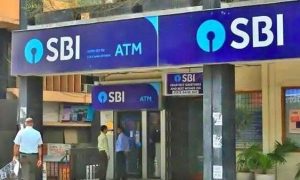TAX REFUND ADVANCES offer quick access to cash as you wait to receive your refund. However, you may want to think twice before agreeing to a tax refund loan, also known as an advance.
“There’s no such thing as a free lunch,” cautions Paul Joseph, a CPA and attorney with tax preparation provider Joseph & Joseph Tax and Payroll in Williamston, Michigan. Tax refund advances can come with hidden fees, a credit pull and even interest. What’s more, they are increasingly irrelevant given the IRS’s fast processing times.
Before you agree to a tax refund advance, consider these factors.[
A tax refund advance is a loan. It can be easy to forget that you’ll go into debt with a tax refund advance. “(It’s) actually a loan from a bank, but it’s offered through tax prep services,” says Davey Quinn, senior vice president of investment management for the online advisory firm United Income.
Companies such as TurboTax and H&R Block offer tax refund advances that work seamlessly with their tax preparation services. The refund from the IRS goes to the preparer automatically to pay back the loan. Advances from these firms and other major tax preparation services often have minimal costs, though refund advances may be capped. For instance, Jackson Hewitt will approve no fee advances up to $3,500. Meanwhile, the maximum advance at TurboTax is $1,000 and is limited to those who expect a refund of at least $4,000. Depending on the company, refund advances may be issued on the same day they are approved, or taxpayers may have to wait for the IRS to accept their return, a process that can take up to 48 hours.Play Video
Other companies offer refund anticipation loans that aren’t linked to tax preparation services. These loans may charge annual interest rates of more than 700 percent and require borrowers to make installment payments on the loan amount. “It’s a very expensive way to get your money,” says Michael Solt, dean of the College of Business Administration at California State University—Long Beach, which provides free tax preparation as part of the IRS’ Volunteer Income Tax Assistance program.
Your credit may be pulled. Since a tax refund advance is a loan, most services will perform some sort of credit review. This may be a soft inquiry that doesn’t affect a credit score. However, other lenders may use a hard inquiry, which can negatively impact your credit score. Before completing a tax refund advance request, understand how the lender will review your creditworthiness and whether it could bring down your credit score.
There are costs associated with a refund advance. In most cases, there are no loan origination fees for tax refund advances, but that doesn’t mean they won’t cost you anything. Tax preparation firms will only extend advances to those who use their services, which could cost a hundred dollars or more, depending on the complexity of your tax return.
“It might be some service you don’t even need,” Quinn says. Low- to moderate-income taxpayers can obtain free tax preparation through the Volunteer Income Tax Assistance program. What’s more, many households who have only W-2 income and limited deductions may find it easiest to prepare their own returns.
Another cost associated with tax refund advances is the price of accessing funds. “Frequently, they are putting the loan on a (prepaid) card, and there are fees for transactions,” Joseph says. These may include ATM fees to withdraw cash from the card or monthly fees if the refund is not used immediately. For example, H&R Block applies ATM surcharges for its Emerald Card that range from $1.50 to $3.00, while the prepaid card supplied by the tax prep company TaxSlayer comes with a $7.95 monthly fee.[
You could owe interest. Most tax preparation services don’t charge interest for their tax refund advances, but there are exceptions. For instance, Jackson Hewitt offers No Fee Advance Loans of up to $3,500 that don’t charge any interest. However, the company’s Go Big Refund Advance Loans have an APR of 35.9 percent for loan amounts up to $7,000. Interest rates can be even higher for refund anticipation loans through services that don’t offer tax preparation.
Since tax refund advances are usually paid back within weeks, the total interest amount may seem relatively minor. For a $1,000 Go Big Refund Advance Loan, Jackson Hewitt estimates a person will pay $23.61 in interest for a 24-day term. “Even if the dollar amount doesn’t sound large, it’s still taxpayer money that could be used in other ways,” Solt says. Plus, interest charges could balloon if a refund is delayed for any reason.
Remember: It doesn’t typically take long to get money back from the IRS. With direct deposit, the IRS issues most refunds within 21 days, but money often lands in taxpayer bank accounts earlier than that. Once you factor in the loan processing time, a tax refund advance is essentially a 10-day loan, Joseph says. In other words, you are only getting your refund about 10 days earlier than when you would expect it to arrive from the IRS. Unless you are in a true financial crisis, it makes little sense to pay the fees associated with an advance when you could wait a few more days for the government to send you the money directly.[
Getting a refund advance from a tax preparation service you already plan to use may not be a costly mistake, but going with a refund anticipation loan from another lender could be expensive. Experts say it’s usually better to file electronically, select direct deposit and wait for your refund to arrive
For more updates: Like us on Facebook and follow us on Twitter & Instagram .

































